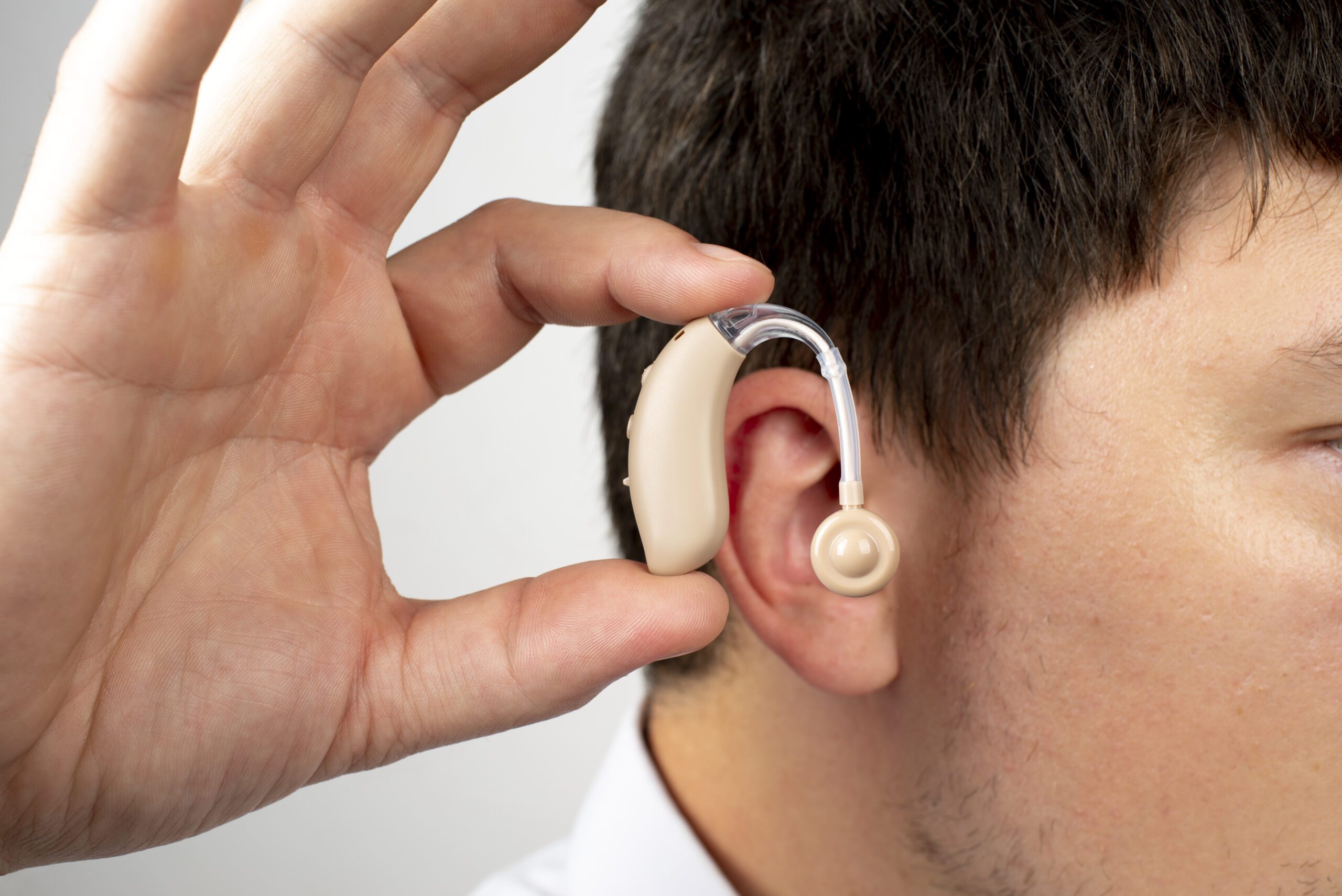Cochlear implants have revolutionized the world of hearing technology, offering hope and a way to regain hearing for people with severe to profound hearing loss. In Pakistan, cochlear implants are becoming increasingly accessible, though they remain a significant investment for many families. This article will cover what a cochlear implant is, who can benefit from it, and explore the cochlear implant price in Pakistan, alongside factors that impact the cost and financing options available.
What is a Cochlear Implant?
A cochlear implant is a small electronic medical device that provides a sense of sound to individuals who have substantial hearing loss and do not benefit from conventional hearing aids. Unlike hearing aids, which amplify sound, cochlear implants bypass damaged portions of the inner ear and directly stimulate the auditory nerve. This technology enables individuals to perceive sounds and even understand speech in various environments.
Who Can Benefit from a Cochlear Implant?
Cochlear implants are ideal for:
- Adults and Children: Individuals who have severe to profound sensorineural hearing loss and gain little benefit from traditional hearing aids.
- Children: Especially young children who receive early implantation benefit most as it can significantly improve their speech and language development.
- Individuals with Auditory Nerve Damage: In some cases where the auditory nerve itself is intact but the hair cells within the cochlea are damaged, a cochlear implant can serve as an effective solution.
Cochlear Implant Price in Pakistan
The price of a cochlear implant in Pakistan typically ranges between PKR 1,500,000 to PKR 3,500,000 (approx. USD 5,000 to USD 12,000). This price can vary depending on several factors, such as the brand, the medical facility, the surgeon’s experience, and additional services like pre-surgical and post-surgical care.
Factors Affecting Cochlear Implant Prices in Pakistan
Several factors contribute to the overall cost of a cochlear implant in Pakistan:
- Brand of the Implant: Different manufacturers produce cochlear implants, including brands like Cochlear, MED-EL, and Advanced Bionics. Each brand offers unique features and technology, which can impact the price.
- Surgical Fees: Experienced cochlear implant surgeons are typically associated with higher costs. However, investing in an experienced surgeon can ensure a successful outcome.
- Hospital Facilities: High-quality medical facilities equipped with advanced technology, patient care, and a supportive environment can be more expensive. Leading hospitals in major cities such as Karachi, Lahore, and Islamabad often charge more than smaller clinics.
- Pre-Surgical Evaluations: Before surgery, comprehensive evaluations are necessary to determine eligibility for cochlear implants. This includes audiometric tests, CT scans, MRI, and other assessments, which add to the cost.
- Post-Surgical Care and Rehabilitation: After the implantation, extensive rehabilitation is necessary for the patient to adapt to the device and develop auditory and speech skills. Rehabilitation, including speech therapy, can last several months or even years and significantly affect the overall expense.
- Warranty and Maintenance: Some implants come with extended warranties and maintenance packages, adding to the initial investment but providing security in case of device malfunction.
Leading Cochlear Implant Centers in Pakistan
In Pakistan, several specialized hospitals and medical centers offer cochlear implant surgeries and related services. Some of the notable facilities include:
- Aga Khan University Hospital (AKUH), Karachi: Known for its high-quality care and advanced technology, AKUH is one of the top options for cochlear implant surgeries in Pakistan. However, it is also among the more expensive facilities.
- Shifa International Hospital, Islamabad: This hospital has an experienced ENT team that conducts cochlear implant surgeries and provides post-surgical care and rehabilitation programs.
- Punjab Institute of Mental Health, Lahore: It offers cochlear implant surgeries at subsidized rates and is more accessible to the general public.
- Jinnah Hospital, Lahore: A public hospital that also performs cochlear implant surgeries at a lower cost compared to private facilities.
The Process of Getting a Cochlear Implant in Pakistan
For those considering a cochlear implant, here’s an overview of the process involved:
- Evaluation and Diagnosis: The first step is to determine eligibility. This includes an audiological evaluation, medical imaging, and possibly psychological assessments to ensure the patient is ready for the implant.
- Pre-Implant Counseling: A counseling session helps patients and their families understand what to expect from the implant in terms of hearing improvement, potential limitations, and the rehabilitation process.
- Surgery: The surgical process itself involves implanting the device under the skin behind the ear and inserting electrodes into the cochlea. Surgery usually takes a few hours under general anesthesia.
- Activation and Tuning: A few weeks post-surgery, the implant is activated, and the external sound processor is fitted. Audiologists then adjust the device according to the patient’s auditory responses.
- Rehabilitation: Intensive post-surgical rehabilitation is crucial for patients to get the most out of their implants. Rehabilitation involves speech therapy and regular visits to the audiologist for device tuning.
Financial Assistance and Insurance Coverage
Cochlear implants are expensive, and not all families can afford them without financial aid. Here are some options to consider:
- Health Insurance: In Pakistan, most insurance providers do not cover cochlear implants. However, some international health plans or specialized insurance might provide partial coverage.
- Charitable Organizations and NGOs: Certain NGOs and charitable organizations in Pakistan assist financially for cochlear implant surgeries. The Pakistan Bait-ul-Mal and Edhi Foundation occasionally provide support for those who qualify.
- Government Assistance: Provincial and federal health departments sometimes offer programs that help subsidize cochlear implant costs, especially for children and patients from low-income families.
- Hospital Payment Plans: Some hospitals offer installment plans or financial packages to make cochlear implants more affordable. These options allow patients to pay in manageable installments.
Is a Cochlear Implant Worth the Investment?
For many people, a cochlear implant is a life-changing device. It provides the opportunity to hear sounds, communicate more effectively, and lead a more socially engaged life. Especially for children, early implantation can result in significantly better outcomes in terms of language and speech development.
However, it is essential for potential recipients and their families to have realistic expectations. Cochlear implants do not restore normal hearing but instead allow the user to experience sounds in a different way. The success of the implant largely depends on the patient’s commitment to post-surgical rehabilitation.
Conclusion
In Pakistan, cochlear implants offer hope to individuals with severe to profound hearing loss, helping them regain access to sounds and communication. The cochlear implant price in Pakistan ranges widely, but it is influenced by factors such as the implant brand, hospital facilities, surgical expertise, and post-surgical care. Despite the high initial cost, many people find it to be a worthwhile investment for improving quality of life and social engagement.
If you or a loved one is considering a cochlear implant, explore different options and speak to multiple healthcare providers. With the right support, financial planning, and expert guidance, a cochlear implant can be a transformative decision in one’s journey toward better hearing.




